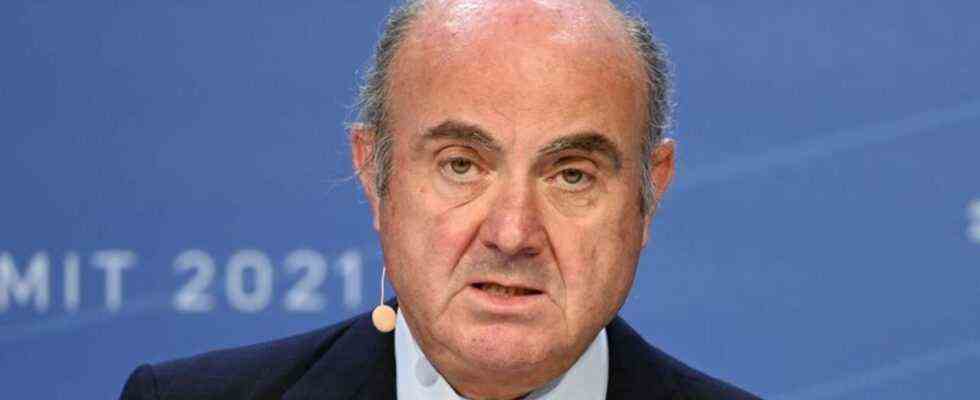Economy
ECB Vice: Bond purchases remain necessary
Luis de Guindos: Some of the scars left by the pandemic have not yet healed properly. Photo: Arne Dedert / dpa
© dpa-infocom GmbH
The European Central Bank is sticking to its loose monetary policy, although inflation in the euro area is rising to record levels. Luis de Guindos also expects large-scale bond purchases in 2022.
ECB Vice President Luis de Guindos expects the central bank to continue to support the economy with billions in bond purchases in 2022.
“I am confident that these net purchases will continue over the next year. I don’t know what comes next, “said de Guindos of the French newspaper” Les Echos “. Meanwhile, the inflation rate in the euro area has risen to a record level.
At its meeting on December 16, the Council of the European Central Bank wants to decide how to proceed with the central bank’s bond purchases. According to previous planning, the PEPP (Pandemic Emergency Purchase Program) purchase program launched to cushion the corona shock with a volume of 1.85 trillion euros will expire in March 2022. There is sympathy in the Governing Council for the idea of transferring the flexibility of this program to other bond purchases.
“We will adapt our pandemic emergency purchase program to the inflation dynamics, to our economic forecasts and to the changed health situation,” said de Guindos. “But we will not let the purchases run out like the US Federal Reserve did.” ECB President Christine Lagarde announced that the net buying would end in March. “They could be resumed if necessary,” said de Guindos.
He personally believes that monetary policy must remain supportive even after the end of the PEPP, “as some of the scars left by the pandemic have not yet healed properly,” said de Guindos. That applies “even if we have reached the level of production and income from before the crisis”.
The ECB is under pressure from critics to tighten its loose monetary policy as inflation rises in the euro area. It strengthened further in November and reached the highest rate in the history of the common currency area. Driven by the sharp rise in energy prices, consumer prices rose by 4.9 percent year-on-year, according to the Eurostat statistics office. In October the rate of price increase was 4.1 percent.
The medium-term inflation target of the ECB of two percent is thus clearly exceeded. The central bank sees the development as temporary and expects inflation rates to fall in 2022. The ECB has not yet signaled any rate hikes.
CSU regional group leader Alexander Dobrindt criticized the ECB in view of the high inflation rate in Germany, which rose to 5.2 percent in November. “More than five percent inflation can not be explained with so-called one-time effects,” he told the “Passauer Neue Presse”. The politician sees the acute danger that the high inflation will solidify and continue into the next year. “This can cause considerable economic and social damage,” he warned.

